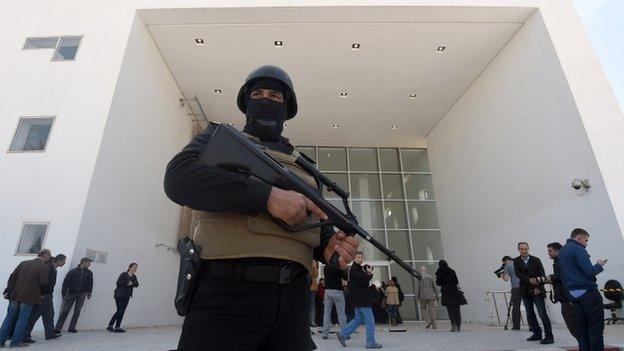Tunisia beach massacre 'linked' to museum killings
- Published
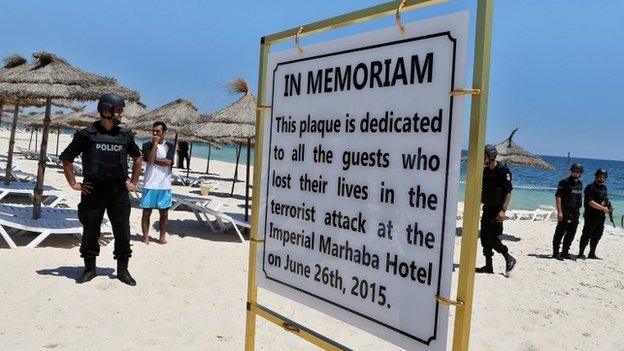
There are "strong" links between June's Tunisia beach massacre and the killings at the Bardo Museum in the country's capital in March, British police say.
Metropolitan Police counter-terrorism officers say they are now connecting the two attacks based on evidence.
The Bardo Museum attack saw 22 people killed, while 38 tourists, including 30 British nationals, were killed in the resort of Sousse in June.
The militant group Islamic State (IS) have said they are behind both attacks.
Tunisian authorities have arrested 150 people to date over the Sousse attack.
Of those, 15 have been charged with terrorism offences.
Those charged face allegations including being involved in a terrorist plot, not informing police of a plan and providing logistical or other support.
A trial in relation to the murders is not expected to take place for up to 18 months.
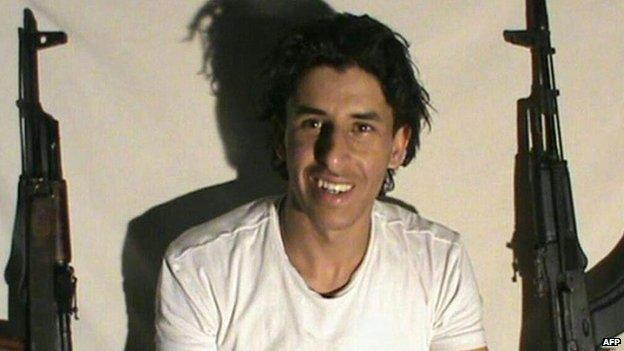
This image of the Seifeddine Rezgui was distributed by IS-linked social media ccounts
Commander Richard Walton, of the Metropolitan Police, which supplied officers to help the Tunisian investigation into the massacre, gave no details of the suspected connection between the attacks but said it was based on "strong" evidence.
Tunisian authorities have also drawn a connection between the attacks, saying that the Sousse attacker likely trained at the same Libyan jihadi camp as the two Bardo attackers.
Accomplices
In Sousse a gunman, who was later identified as Tunisian student Seifeddine Rezgui, opened fire on the beach after coming in from the sea using a jet ski or speedboat.
After shooting on the beach, he entered the Hotel Imperial Marhaba, where explosives were detonated and more tourists were shot. Rezgui then ran out of the hotel and police shot him dead.
Tunisian authorities believe the 23-year-old's suspected accomplices provided a Kalashnikov assault rifle and helped Rezgui get to the scene, interior ministry spokesman Mohamed Ali Aroui told AP.
Mr Walton also disclosed that Rezgui's body has not been claimed due to the shame his family feel and fear of reprisals if they do so.

Analysis
In Tunis - Rana Jawad, BBC North Africa correspondent
The announcement by the Metropolitan Police's counter-terrorism unit is not surprising, but it provides some credence to what has so far remained cryptic rhetoric from Tunisian officials.
Less than a week after Saifeddine Rezqui's rampage in Sousse, authorities here said the gunman had "likely" trained in Libya at the same time as the Bardo Museum assailants.
How and why they reached that conclusion was unclear.
By mid-July security services here had arrested more than 100 people they describe as being "suspected members of terrorist gangs" - in the majority of these cases, it's unknown what happens to these detainees or what "gangs" they belong to.

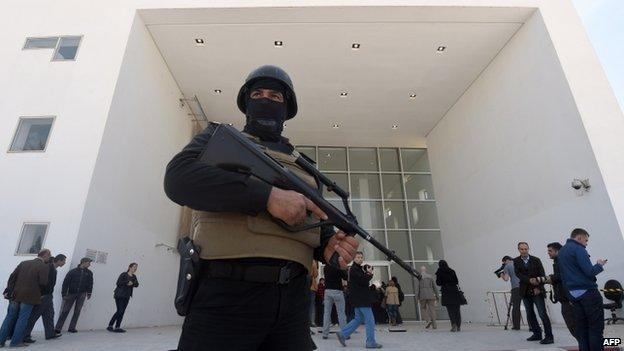
Security was heightened following the attack on the museum in Tunis
The Bardo Museum in Tunis was stormed by three gunmen on 18 March. British, Japanese, French, Italian and Colombian tourists were among the 22 they killed.
Witnesses said the gunmen, carrying assault rifles, opened fire on tourists outside the museum in front of a row of buses before charging inside and taking hostages.
Two of the gunmen - identified by the authorities as Yassine Laabidi and Hatem Khachnaoui - were killed by security forces.
Nine people have now been arrested in connection with the museum attack.
- Published29 July 2015
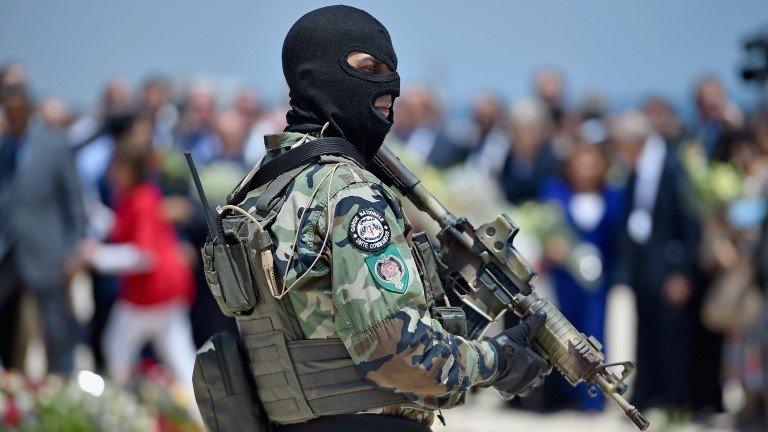
- Published1 February 2017
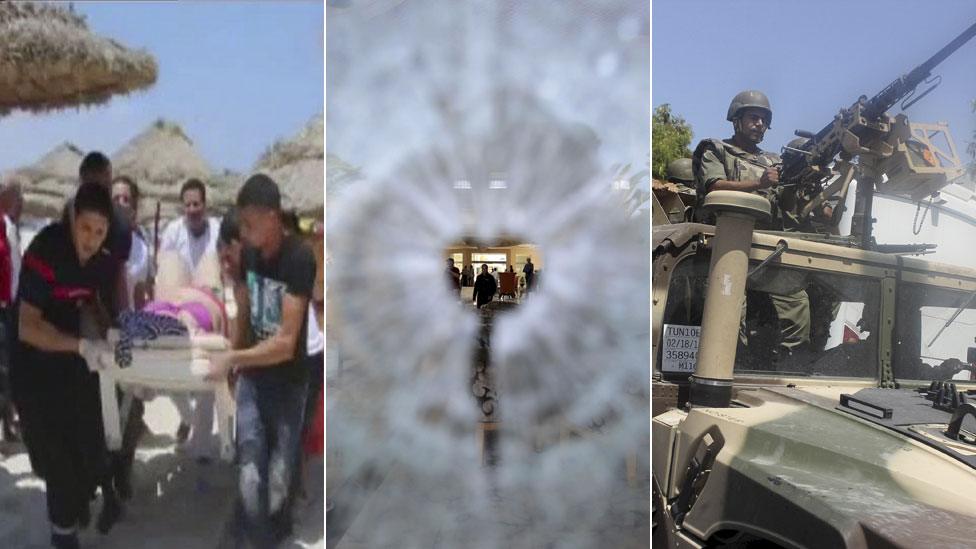
- Published29 June 2015
- Published23 March 2015
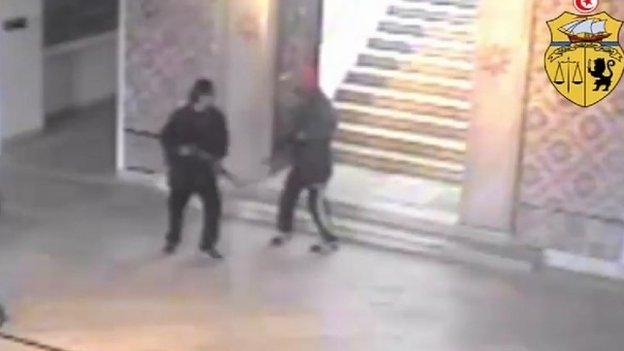
- Published20 March 2015
